- Home
- Robert Hellenga
The Italian Lover Page 2
The Italian Lover Read online
Page 2
The ambulance was already there by the time she went back into the piazza. Woody was arguing with the driver, who didn’t want to take the dog in the ambulance.
“We can’t take a dog,” he was shouting, “it’s not permitted. You should have called the Guardia Medica Veterinaria.”
Woody was shouting back: “There’s no time. You can see this is an emergency. Help me get the dog on the stretcher. There’s a clinic on Via Masaccio. I walk past it every day. I think it’s open till midnight.”
The woman—knife man’s girlfriend?—got into the car and slammed the door and started the engine.
“Jesus Christ,” Woody shouted. The dog was still tied to the car. Woody had to put his foot on the guitar case to get enough leverage to pull the knife out. He fell back a step when the knife came free but managed to cut the rope as it was tightening around the dog’s collar. The car screeched out of the piazza and disappeared down Via della Colonna.
“Porcamadonna,” the ambulance driver said. “What about the man?”
“Call another ambulance.”
The driver took a look at Woody and Woody’s hands, which were covered with the dog’s blood, and at the knife, and at the dog lying on the ground. He nodded to his assistant, who helped Woody get the dog on the stretcher. And then he radioed for another ambulance.
Margot watched Woody put his guitar in the back of the ambulance and climb in with the dog. The police arrived as the ambulance was pulling out of the piazza, lights flashing. It wasn’t easy to explain what had happened without explaining why the man had been left lying in the piazza, but Margot did her best. There’d been a fight, she said. She’d been on her way to San Marco; she’d called the police from the hotel . . .
But why hadn’t the ambulance taken the man who was lying on the pavement? That was the question.
“There was a fight,” she said. “There were two of them. There wasn’t room.” A second ambulance arrived. The poliziotto took her name and address and phone number and went to assist the man on the ground.
Margot slipped away down Via dei Servi. She walked home to her apartment in Santa Croce. She walked down Via degli Alfani, past the Liceo Scientifico Morgagni, which she’d attended when she was living in Florence with her mother, and then down Borgo Pinti, past the apartment where they’d lived. She was ashamed of herself for everything: for boasting about the film; for planning to invite a man up to her apartment and into her bed—just because she was lonely and he was a midwesterner; for being afraid, and for being excited, and for wanting to run away instead of helping the dog. She thought of her old dog, Brownie, how brave he was when they took him to Dr. Vollman to have him put down because he couldn’t walk and couldn’t eat and couldn’t drink. Not even a sip of water. And especially, she was ashamed for being homesick. She kept circling back to this point, like a hunter lost in the woods, each circle getting a little larger. Once every few months at first, and then once a year, and then once every two or three years, and so on, till she’d forget about the circle and think that she was walking in a straight line.
First Reconnaissance
Esther Klein made her first recce in Florence at the end of September 1990. She flew economy class to Rome and bought a second-class train ticket to Florence. She had no financing, no director, no actors, but she had a script, and when Harry—her husband and partner for the last thirty years—had dumped her back in March, left her for a woman her own age, she knew she had to make this film. It wasn’t as if she’d never made a film before. It was just that she’d never done it without Harry to direct. An Esther and Harry Klein Production. That was their credit line.
The property she wanted was a book that had been knocking around for fifteen years. She’d picked it up cheap, years ago, after MGM had put it in turnaround, and she’d written a screenplay herself. Then Harry decided he didn’t want to do a romantic comedy, and they went on to something else and the option had expired, but Esther’d kept an eye on it. It had been optioned several times since then, but nothing had come of it, and now that she was on her own, she was determined to make it. What she needed were the rights to the book. What she wanted was a free option. Once she had the rights she could write her own ticket.
On the train to Florence she’d tried to keep a lid on her feelings. She’d wanted to make this film for so many years that she’d started to think of Margot as her daughter, the daughter she’d never had. She always told herself that her films were her children. All fifteen of them, all made with Harry. But sometimes she longed for a flesh-and-blood daughter, like Margot. She wanted Margot to have a lover like Marcello Mastroianni. Which was out of the question, of course, but when she imagined Margot, she imagined Julia Roberts or Meg Ryan; and when she imagined Margot’s Italian lover, she imagined Marcello Mastroianni: worldly, sophisticated, handsome, even in those big glasses he wore in 81/2. Or maybe Giovanni Cipriani, who would cover foreign sales and who had a significant American fan base, though he’d been denied a visa to enter the U.S. after making fun of President Bush and Dan Quayle in a skit he’d done at Harvard.
Esther had filmed in Italy before, but Harry had always been there to direct, and there’d always been people to look after the details, to take care of train tickets, to translate, to find bathrooms, restaurants, hotels. Everything had been first-class too. Now she had to settle for a two-star hotel near the station where the woman at the desk didn’t speak English very well. It was four o’clock in the afternoon by the time she’d unpacked her suitcase. She lay down on the bed and slept for four hours, and then she went outside and followed a street till it came to the Arno, which didn’t look like much—hard to believe it could have flooded the whole town—and ate at a place called Dante’s Pizzeria. She asked for pepperoni on her pizza and got big chunks of green pepper, which she didn’t care for. Dante Schmante.
In the morning Esther walked around the narrow streets of Florence. She was planning to do the interiors in Eastern Europe, but there was no way to fake the Duomo and Giotto’s tower and the Palazzo Vecchio. Florence wasn’t a city adapted for films—no room for the trucks, too crowded. Maybe it wouldn’t be so bad in winter—February and March. She’d seen Mario Monicelli’s Amici miei at Cannes, with Harry. She tried to remember other films shot in Florence but could come up with only a handful: William Dieterle’s September Affair, Brian de Palma’s Obsession, and, of course, A Room with a View. Ismail Merchant had told her once that he’d made A Room with a View for three million dollars. She hadn’t known whether to believe him or not. Three million was nothing. Even in 1985. All that period stuff. Shooting in England too. Harry had a huge budget for the piece of schlock he was directing at Paramount.
But Esther was still a player, even without Harry, a player with a reputation for bringing in her films on time and under budget in spite of Harry, who didn’t believe in budgets and time cards. She’d never be able to afford a flood, of course, but a broken pipe would get the job done, and they could dress up something to look like Sotheby’s and shoot the auction scene right in Florence. She’d like to block off one of the big piazzas—Piazza Signoria or Piazza Santa Croce—but that could be a major headache. Permissions would be expensive—you rent the piazzas by the square meter—and you’d need plenty of extras too, but she wasn’t going to do the flood, and she wasn’t going to do the sixties, so she wouldn’t have to worry about a sixties look. Just let the extras wear their own clothes. It wasn’t rocket science, after all. It wasn’t magic. You hired some actors, you filmed the script, you edited the footage, you put it up on a screen and invited people to watch.
Esther found herself in Via Tornabuoni, where Harry had bought her an emerald broach at Cartier, but nothing appealed to her. Nothing. Just the opposite, in fact. Everything looked ridiculous. Gucci, Ferragamo, Bvlgari with the annoying v, Armani, Prada, Pucci, Louis Vuitton. She was looking at her reflection in the window at Louis Vuitton. She’d never paid much attention to clothes. That was her signature, her persona—a to
ugh old broad who didn’t give a damn what she looked like and who always told the truth, even when it made everyone squirm. That’s the way she’d always played it, and that’s the way Harry’d always liked it. At least that’s what she’d thought. But now Harry was gone, and the figure in the window looked matronly rather than tough. It wasn’t a good look, especially in Italy. The wardrobe consultant she’d hired after the divorce wouldn’t like it at all. She’d come to the house in Santa Monica, with its polished fieldstone entryway and red Italian tiles in the kitchen, and thrown out most of Esther’s clothes—lots of silk dresses and jackets with bulky shoulder pads, and Dynasty-inspired evening gowns that she’d bought on Rodeo Drive and never worn. She’d advised Esther to buy monochromatic outfits with diagonal lines and some texturing that would make her look slimmer and taller. She advised her to develop her clothing radar so she could zoom in on the things she really loved, but Esther hadn’t had the heart for it. If only Harry had run off with a bimbo, some floozy half his age, everyone, including Esther herself, would have known what to think.
She was going to meet Margot at her studio, at one o’clock for lunch, and she was hungry, even though it was only twelve. She was walking up and down the Lungarno on the other side of the river from the studio—she didn’t want Margot to see her—when her clothing radar registered a coat in a shop window, a coat made from different-colored leathers and trimmed with fur. It was really stunning. Simple, she thought, and stunning. And something inside her said Yes! in a loud voice. A woman wearing a coat like that . . . She was trying to see the price, but the tag was turned the wrong way.
A man came out of the store and spoke to her in good English. He was very nice and seemed to understand exactly what she needed. They went inside and she tried on the coat. It felt fantastic. She could feel his eyes admiring her. A woman wearing this coat could not fail in any endeavor. You could wear a coat like this to the Oscars. It would be a little unconventional, but that didn’t bother Esther. It was practical too. Lined with one of those new insulating materials. But the price. Horrendous. Over a million lire. Not that she was broke. But you needed a sense of proportion in these things. Harry would have told her to buy it. It’s only money. That was all very well for Harry to say. He was directing Diana Giulia in a disgusting studio blockbuster. It wasn’t the money that bothered her; it was the lack of integrity.
“It’s lovely,” she said, “but I’ll have to think about it.”
She went outside, walked up and down, and thought about it. She watched the river for a while. The next time she looked at her watch it was twenty minutes to one.
It made her angry to think about it. She didn’t want a material possession to take hold of her like this, especially not a piece of clothing. She had an espresso at a bar, and the coffee made her feel better. She had a good feeling about the coat now. She knew that if she was wearing this coat when she went to see Margot, she’d get the free option. She couldn’t afford not to get the coat.
She paid with a credit card and left her old coat in the shop. She’d pick it up later.
Margot was so exasperated with Rabbi Kors, who wouldn’t stop talking at her in that raspy singsong voice of his, that she had no idea who this woman was, coming through the door in the ridiculous leather coat that she’d seen in the window of the Leather Factory near the Ponte alle Grazie—scraps of different-colored leather sewn together like a patchwork quilt. It wasn’t a fashion statement, it was a fashion shout. “Get out of my way,” it said, “I’m coming through.” And it was at least a size too small! The shoulders were tight, the sleeves too short.
“Esther Klein,” the woman said, holding out her hand. Margot shook her hand, trying not to stare at the coat.
Rabbi Kors, a small man with a king-size beard and a lot of energy in his eyes, kept right on talking. Margot motioned to him to be silent, but without success. Something had to be done immediately, he was saying, something had to be done by Margot. Other arrangements had to be made.
What had happened was this, as Margot tried to explain to Esther. There’d been a fire in the yeshiva library at the synagogue in Severiano, a small town south of Siena, in the province of Grosseto. The rabbi had called Margot, who’d done some work for him in the past, and Margot had arranged for the damaged books to be freeze-dried at a fast-food facility near the big wholesale market in Florence on the edge of town. But the only freeze-drying unit that was available had been used for pork sausage patties—traef—and the rabbi refused to use it for his precious books. Margot should never have mentioned the fact that there was a new freeze-drying unit—liofilizzazione was the Italian word—at the Biblioteca Nazionale’s laboratorio di restauro in Piazza Sant’Ambrogio, because the compressor was down, and they wouldn’t have been allowed to use it anyway. But Rabbi Kors had got the idea stuck between his teeth and couldn’t stop worrying it.
“They’re not going to eat the books, are they?” Esther asked.
“No,” Margot said, looking at Esther. “The members of his congregation want to go ahead and freeze-dry the books, and I called Rabbi Levi at the synagogue here in Florence, and he said that kashruth doesn’t apply in this case, but Rabbi Kors, here”—Margot put her hands together in a praying position, pointed them at the rabbi, and shook them up and down—“Rabbi Kors here wants me to make other arrangements.”
Rabbi Kors started to appeal to Esther, first in Italian and then in Yiddish, which Esther recognized because her parents had spoken Yiddish when they hadn’t wanted her to know what they were talking about. But she didn’t speak it herself, and the rabbi didn’t speak English, and after two minutes Margot stopped translating. Margot was tempted, in fact, to wash her hands of the whole business. She was the book conservator, the expert, the perito. The rabbi needed her help. She didn’t need his.
But she knew that that wasn’t quite true. Here was a man prepared to sacrifice the things most precious to him—his books, his library—for the sake of something more precious. She wanted to be close to that something because she wasn’t sure that there was anything quite like it in her own life.
“Why don’t you just kosher the freeze-drying unit at the market?” Esther asked, pulling on one of the buttons of her coat.
“I hadn’t thought of that,” Margot said. She translated for the rabbi. He hadn’t thought of it either.
“You can get this kosher dishwashing liquid now,” Esther said. “You don’t even have to boil the water. Just wipe everything down with a sponge.”
Margot and the rabbi both looked at Esther as if she were King Solomon.
That afternoon they koshered the freeze-drying unit with two bottles of special dishwashing liquid from a kosher restaurant next to the synagogue, where Margot sometimes ate lunch. Esther and Margot and two men from the synagogue in Severiano carried in the boxes of books from the back of a truck. In most fires the damage to the books is caused not by the fire itself but by the water from the fire hoses. If something isn’t done within thirty-six hours, the books will start to mold. When a book is freeze-dried at -40 to -50 degrees Celsius, however, the microorganisms that cause the mold cease to proliferate, and when a freeze-dried book is allowed to thaw, it’s dry. Just like coffee crystals or sausage patties. The ice vaporizes without passing through a liquid state.
Ideally they would have taken the books out of the boxes and opened them up, but there wasn’t time for that now.
When they were done, Esther’s coat was covered with soot and one of the buttons had come off, but she shrugged off the damage. Rabbi Kors thanked Esther profusely but refused to shake the hand she held out. “He’s not supposed to touch a woman,” Margot explained. He wanted to know when Margot would have the books ready for him to take back.
“Rabbi Kors,” she said, resisting the temptation to put an arm around the old man, “I know you’re not a patient man, but I have a lot of things on my plate right now, and you’re just going to have to wait your turn.”
“But Signora Harrin
gton,” the rabbi began to protest. Margot put her hands over her ears.
At dinner that night, at Trattoria la Maremmana near Piazza Santa Croce, Esther ordered lasagna al forno and then loaded up her plate at the buffet with octopus salad and crostini and slices of melon wrapped in prosciutto. They’d skipped lunch and she was hungry. She was happy too. This was the restaurant where Margot had eaten with Sandro, her lover, after the strappo in the Badia, and afterward, out in the street, Sandro had sung “The Flowers That Bloom in the Spring” from The Mikado, and she didn’t see how Margot could say no to her, not after the work they’d done that afternoon, not after she, Esther Klein, had saved the day by suggesting that they kosher the freezer.
“Who would you like to see play you?” she asked, cutting a little octopus in half. “If you could have anyone you want. Anyone.”
“Oh, I don’t know,” Margot said.
“Dream a little,” Esther said. “Anyone you want.”
“Jane Fonda?”
Esther put down her fork and stared. “Jane Fonda? You’re kidding. She’s over fifty.”
“Well, she looks young.”
Esther shook her head. “Julia Roberts?” she said. “Pretty Woman? Wouldn’t that be a coup. Andie MacDowell? Sex, Lies, and Videotape? That won at Sundance. Nicole Kidman, Days of Thunder? But you know who I see? I see Meg Ryan or Debra Winger. They’ve both got spunk, and that’s what you need for Margot, don’t you think?”
“Why would they take this role if there’s not a lot of money?”
“Because they’re hungry for good roles. Debra Winger and Andie MacDowell are both over thirty. How many good roles are there for women over thirty? It’s not about money.” But Esther could see that Margot didn’t know who these actresses were and hadn’t seen any of the films she mentioned.

 Love, Death & Rare Books
Love, Death & Rare Books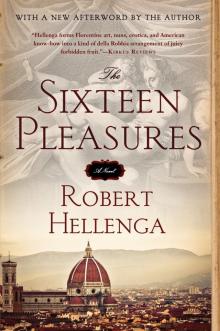 The Sixteen Pleasures
The Sixteen Pleasures The Italian Lover
The Italian Lover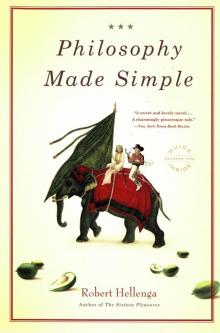 Philosophy Made Simple
Philosophy Made Simple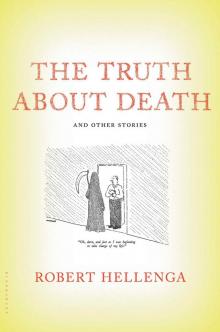 The Truth About Death
The Truth About Death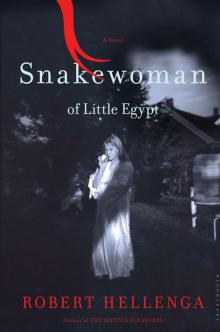 Snakewoman of Little Egypt
Snakewoman of Little Egypt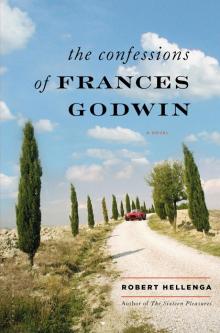 The Confessions of Frances Godwin
The Confessions of Frances Godwin